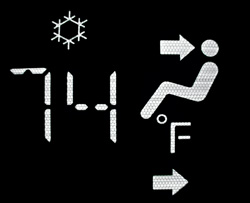Ultimate air conditioning
There has been a need in recent years to develop more efficient air conditioning (AC) systems that feature better refrigerants, are more environmentally friendly and release less emission. The EU-funded project 'Thermally operated mobile air conditioning systems' (Topmacs) developed four AC prototypes based on sorption cooling and metal hydride. The system exploits surplus heat from the car engine itself, thus requiring much less electricity to create a more efficient approach to cooling and heating. Refrigerants used include water, hydrogen or ammonia, which all have no impact on the environment and comply with EU regulations on emissions. In addition, a small fuel burner can be integrated for use when the 'thermal engine' is switched off, useful for cooling and warming before the vehicle kicks in. This is also ideal for electric and hybrid cars. Topmacs tested these systems in one car and one truck with success. The car featured a silica-gel/water sorption cooling system while the truck was fitted with a zeolite/water sorption cooling system. A novel activated carbon/ammonia cooling system and a metal hydride mechanical compression-based cooling system were also tested in the laboratory. The AC prototypes improved on current sorption cooling systems by up to nine times. They had no emissions caused by refrigerants and negligible CO2 emissions. Low to zero fuel consumption was achieved and no mechanical compressor was attached to the engine, making for a much more efficient system overall. If exploited, these prototypes can transform the way we cool and heat cars to something much more efficient and environmentally friendly.







